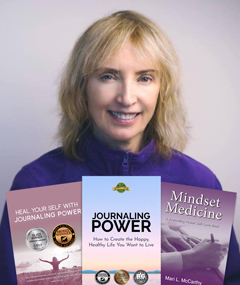If you go to your local bookstore you'll find that the shelves are full of self-help books. The titles, topics, and approaches to self-help are varied and at times confusing and contradicting, and self-therapy is no different. A quick internet search for "self-help books" returns over 3.4 billion results, in fact, CreateWriteNow has many items on this topic! If we look at the definition of self-help we find that it is described as "Self-help consists of doing things yourself to try and solve your own problems without depending on other people".
Where did this all start? Back in 1859, Samuel Smiles wrote a book named Self-Help where he proposed that knowledge was one of the highest human enjoyments. The book became an unexpected sensation and Smile became a bit of a celebrity and sparked an entire industry focused on helping us help ourselves.
With so many resources available simply trying to find the "right" one can cause anxiety, so where do you start? Fortunately, we have an answer.
There was an article written on the PsychCentral website on April 18, 2022 titled Self-Therapy: Can You Be Your Own Therapist? in this article the writer dives deep into what self-therapy is, the tools and resources to help you, the pros and cons of self-therapy and so much more.
Here is a short excerpt from that article:
Self-therapy could offer accessible and effective ways to develop tools for healing. It isn’t a replacement for formal psychotherapy, though.
Self-directed mental health interventions are more common than you might think. Many people use apps, books, and other self-help strategies to find their way to better mental health. This is sometimes referred to as self-therapy.
But is being your own therapist effective? And most importantly, is it safe and recommended?
What is self-therapy?
Self-therapy isn’t a formal type of psychotherapy. Instead, it may be better thought of as the use of self-help strategies for mental well-being purposes.
Being your own therapist is about taking command to develop and implement the skills necessary to better anticipate and manage mental health challenges.
In other words, self-therapy is an informal psychological intervention delivered by yourself to yourself, without the input of a trained psychotherapist.
Formal mental health therapy, or psychotherapy, is based on the professional-client relationship. This relationship is essential to the therapeutic process, and it’s of course lacking in self-directed interventions.
In this sense, what we call self-therapy isn’t equal to or a replacement for psychotherapy. However, it could be a great complement to professional support.
Even though the term “self-therapy” is used in many spaces, it might be misleading for some.
You can continue to read the full article HERE



Leave Comment